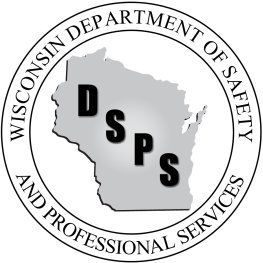DSPS Launches Workforce Study with Dentist and Dental Hygienist Renewals
MADISON, Wis. – Wisconsin dentists and dental hygienists have the opportunity to expand access to dental health care in the state, unlock higher levels federal funding, and generate valuable workforce information that could benefit all facets of the profession, including dental practices, schools, and dental and dental hygiene students.
As part of the 2021 license renewal, the Department of Safety and Professional Services included dental workforce questions to generate information about who is practicing dentistry and where in Wisconsin. Dentists and dental hygienists can answer the questions during their renewal, and the information generated could enable Wisconsin to identify parts of the state that currently have dental care access barriers or that could in the future as dental professionals in some communities retire.
“We were excited to include this workforce study in the license renewal process,” said DSPS Secretary Dawn Crim. “Having more information about our dental workforce helps the industry identify areas of need, develop plans to meet that need, and access funding to execute those plans.”
Dr. Russell Dunkel, state dental director for the Department of Health Services, says there are currently many unknowns and assumptions regarding the Wisconsin dental workforce, and more data could help identify whether there is an overall shortage of dentists and hygienists or whether shortages are specific to certain geographic areas. In particular, there is speculation that some rural communities will lose access to care as dentists retire in the coming years. Dunkel says more accurate data could identify whether that is true or where it is true. He also adds that the workforce information could help dental and dental hygiene schools determine whether they need to increase enrollment to adequately serve Wisconsin’s dental health needs.
“Oral health is an integral part of overall health and obtaining current and accurate workforce data will ensure that all Wisconsin residents can access the highest level of care in all geographic areas,” Dr. Dunkel said.
So far, nearly half of dentists and dental hygienists who have renewed their licenses have answered the questions. Ideally, Crim says, partners would like to see a response rate of 67% or higher, as this could unlock higher rates of federal funding related to health professional shortage areas.
“We are enthusiastic about collaborating with DSPS on this study because we know that there is more funding available and more we can do for the people of Wisconsin if we can collect better information about our health care workforce,” Olson said. “States that access the highest level of funding tend to gather this information during the license renewal cycle, so working together was the smartest strategy.”
Olson says the information could also help certain dental graduates qualify for loan forgiveness programs or encourage them to practice in areas of greater need.
Dentists and dental hygienists who have not yet renewed can answer the study questions when they renew their licenses. Those who have already renewed can return to the study to participate. Before the renewal cycle closes, DSPS will email a survey link to dentists and dental hygienists who have not yet participated.
“Every dentist and every dental hygienist who participates in the study will help ensure that every Wisconsin community has adequate access to complete dental care. Every dentist and hygienist who participates in the study will help our educational programs determine the right size for incoming classes and allocate resources to placement programs in areas of need. Every dentist and dental hygienist who completes the study will help Wisconsin access higher levels of federal assistance,” Crim said. “This is a powerful way to make a difference for not only the dental profession but also for all the people of Wisconsin.”
Crim said DSPS leadership had been exploring ways to use the license renewal process to generate workforce information that could ensure access to dental health care throughout the state. Conversations with stakeholders revealed broad support for the effort.
The Department of Safety and Professional Services issues more than 240 unique licenses, administers dozens of boards and councils that regulate professions, enforces state building codes, runs the state fire prevention program, and maintains the award-winning Wisconsin Enhanced Prescription Drug Monitoring Program, which is a key tool in the multi-faceted public health campaign to stem excessive opioid prescribing. A fee-based agency, the Department of Safety and Professional Services is self-sustaining and receives no general fund tax dollars for its day-to-day operations. With five offices and 250 employees throughout Wisconsin, DSPS collaborates with constituents and stakeholders across a wide range of industries to promote safety and advance the economy.
NOTE: This press release was submitted to Urban Milwaukee and was not written by an Urban Milwaukee writer. While it is believed to be reliable, Urban Milwaukee does not guarantee its accuracy or completeness.
Mentioned in This Press Release
Recent Press Releases by Wisconsin Department of Safety and Professional Services
WI DSPS Receives Vital Feeback From Regulatory Board Members
Feb 3rd, 2026 by Wisconsin Department of Safety and Professional ServicesBoard survey results highlight the positive impact of service and room for growth
Latest Round of DSPS Youth Firefighter Training Grants Opening
Feb 2nd, 2026 by Wisconsin Department of Safety and Professional ServicesWisconsin's safety agency continues investment in future of state fire departments
Wisconsin DSPS Recognized for Innovation
Nov 26th, 2025 by Wisconsin Department of Safety and Professional ServicesAgency's digital license offering earns prestigious award


















